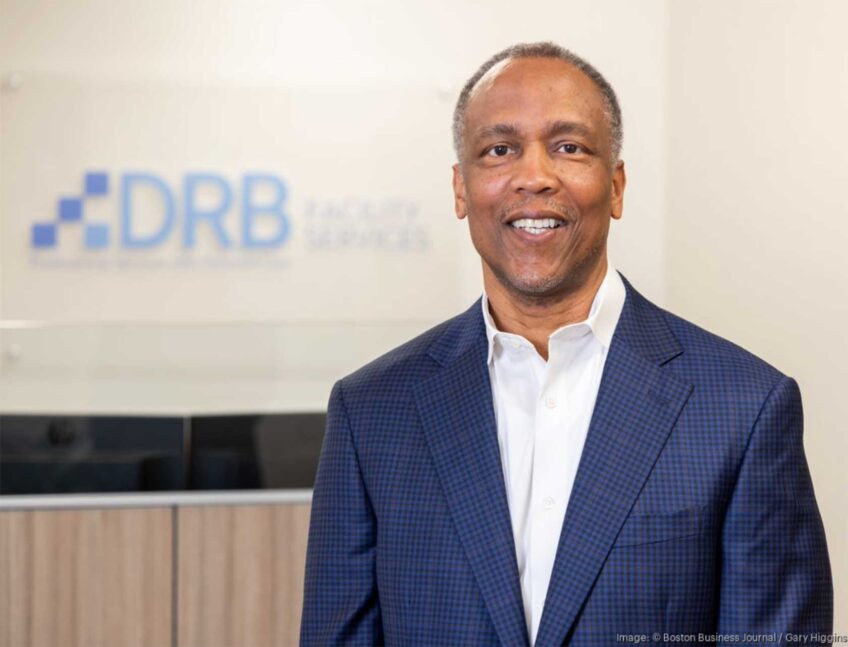The promise of medical tech
State, local officials seek opportunities for local businesses

Gov. Charlie Baker and Boston Mayor Marty Walsh have each worked to pump up the small business climate in Boston and Massachusetts, in an effort to add jobs to strengthen the local economy. Last week, the pair came together to detail plans to boost the state’s burgeoning digital health-care sector in a move that could have a large ripple effect on the local startup community and small businesses connected to health.
The plan is a statewide effort of public officials and private sector companies working together to support startups chasing the extremely promising digital health sector. Massachusetts may have long been at the forefront of the life-sciences and biotechnology sectors, but the growth of digital health, or eHealth industry, is still on the rise and local officials are keen to get out in front of it.
The sector combines health-care and information technology and spans a wide range of technologies, including electronic health records, consumer wearable devices, payment management, Big Data analytics and telemedicine.
A report by Goldman Sachs tabbed the digital health sector as reaching $32 billion in the next decade. Baker and Walsh are banking on the fact that Massachusetts already houses some 250 digital health companies, has a vastly successful life sciences sector and is home to some of the world’s best healthcare and academic institutions to put the state on the digital health sector fast track.
“Our administration is committed to making Massachusetts a national leader in digital health by partnering with private industry, convening key stakeholders and addressing market gaps,” Baker said at a press event on Jan. 7 at Boston Children’s Hospital. “This emerging industry cluster has the potential to become a powerful driver of job creation across the Commonwealth, while also unlocking new advances in improving patient care and lowering health care costs.”
Baker spoke along with Walsh, as well as others including Massachusetts House Speaker Robert DeLeo, state Housing and Economic Development Secretary Jay Ash and Massachusetts Executive Office of Health and Human Services Secretary Marylou Sudders.

Author: Katherine C. Cohen/Boston Children’s HospitalBoston mayor Martin J. Walsh talks at Boston Children’s Hospital about the city’s efforts to boost the support to companies and startups in the digital health sector. In the background is Sandra Fenwick, president and CEO of Boston Children’s Hospital.
“Strong public-private partnerships are what make our city, and our region, more competitive in the global economy,” Walsh said. “We know that the digital health-care industry is Boston’s future, and I thank our state and private sector partners for their support. By working together, we can maintain Boston’s leadership in health care and the life sciences, and create an environment where the digital healthcare industry can thrive and we can better serve our patients and their families.”
The first concrete move that might interest small business entrepreneurs is the establishment of a digital health innovation hub in Boston. To be set up at a city site yet to be named, the hub will provide space, programming and an industry network for digital health startups. The move mirrors similar efforts made to establish now-successful hubs for other tech startups at several locations throughout the city.
The Massachusetts eHealth Institute at the Massachusetts Technology Collaborative and the Massachusetts Competitive Partnership will oversee the creation of the digital health innovation hub, with local startup-support organization MassChallenge managing and operating the programming.
The Mass eHealth Institute, which was established in 2008, already has a strong track record in the healthcare sector having been behind successful efforts to push the use of some of the initial digital healthcare technologies that have emerged, such as electronic health records and the health information exchange. The efforts have helped give Massachusetts one of the highest electronic health record penetration rates in the country.
Housing and Economic Development Secretary Ash pointed out that the emerging technologies in all sectors throughout the state have been a big job boost and said he expects the same type of job growth to be tied in to emerging technologies from the digital health industry. His view is the already deep investment in established industries in the state, including biotechnology, cloud computing and flexible hybrid electronics, can serve as a base for collaboration with emerging digital health technologies that can be commercialized and targeted for market.
While Massachusetts has some of the biggest digital health companies already, including Phillips, AthenaHealth and Medical Information Technology — and 250 total businesses targeting this sector — the industry sentiment is that the door is wide open for startups that can address many of the market opportunities.
For example, a recent report from Accenture found that only 2 percent of the patients in the largest U.S. hospitals are using hospital-provided mobile health apps and estimated that the failure of hospitals to meet patient demand for such services is costing each one on average more than $100 million in lost revenue a year. Accenture’s suggestion to fix the problem was, in part, to partner with independent app companies creating such mobile health apps, which undoubtedly points to the startup community that leads the app development world.
These kind of things are what has led to a large upswing in investor funding into the digital health industry. A report from StartUp Health Insights found that digital health funding more than doubled from 2013 to 2015, going from $2.9 billion in 2013 to about $7 billion now annually.
Massachusetts leaders are looking to take advantage of this promising startup environment. Gov. Baker has asked the Mass eHealth Institute to do everything it can to develop a “cluster” of digital health companies in the state. The aim is to not only help local companies launch in this sector, but to attract entrepreneurs and other companies to the state so they can be in close proximity to what all hope will soon be the beating heart of digital health worldwide.
Jeffrey Leiden, who heads up the Massachusetts Competitive Partnership’s digital health efforts and is also CEO of Vertex Pharmaceuticals, said the state must work to clear any challenges companies have to chasing the digital health market from funding to finding good locations to launch companies. If Massachusetts can do this, he believes it can become “the premier location to start and grow a digital health-care company.”






